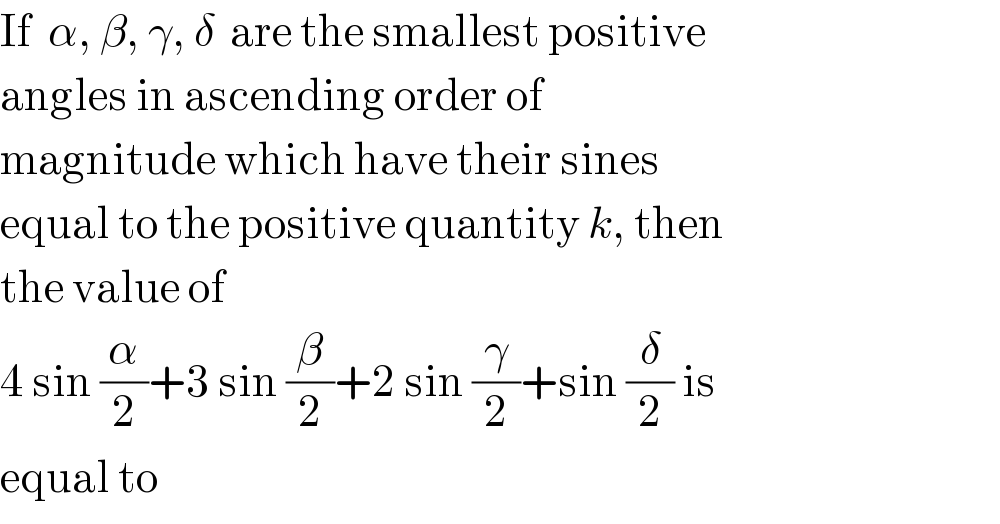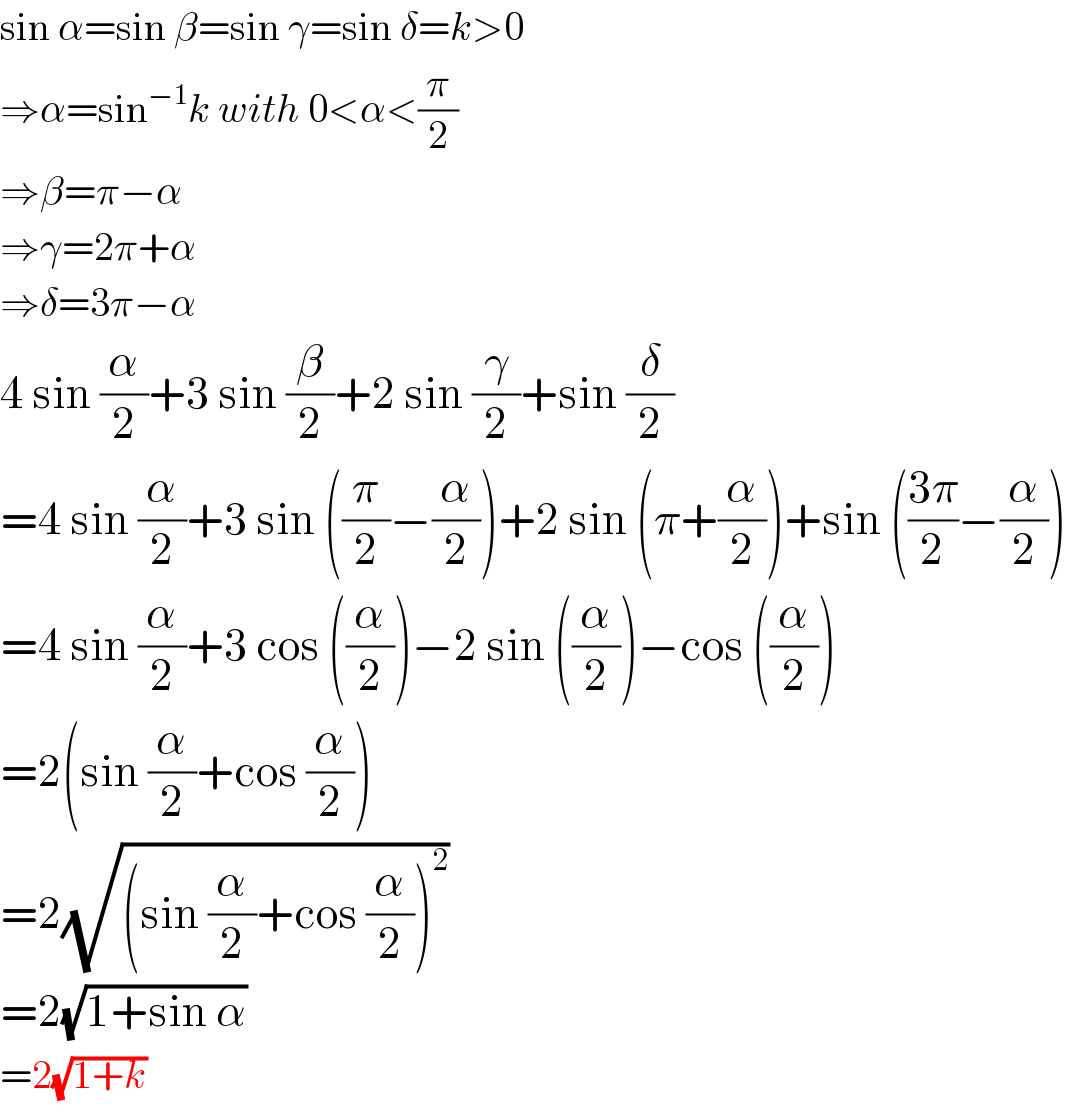
Question and Answers Forum
Question Number 115685 by ZiYangLee last updated on 27/Sep/20

Answered by mr W last updated on 27/Sep/20

Commented by ZiYangLee last updated on 29/Sep/20

| ||
Question and Answers Forum | ||
Question Number 115685 by ZiYangLee last updated on 27/Sep/20 | ||
 | ||
Answered by mr W last updated on 27/Sep/20 | ||
 | ||
| ||
Commented by ZiYangLee last updated on 29/Sep/20 | ||
 | ||